In my last blog post, I introduced you to the game Make Twenty. I promised you some variations on that game, and guess what – today’s the day! If you haven’t read the original post yet, you’ll want to do that first to get your bearings. Then come back here and Robbie and I will show you a few ways to change up the game a little bit.
You can make this game easier for players who get frustrated. Or, you can add an extra level of challenge for players who are ready for more. First I’ll show you the easier game – we’ve called it Make Twenty: Apprentice Level.
In this variation, each player is required to play on every turn; you just have to make an expression that gets as close to 20 as possible. Can’t see a way to make 20? Make 19, or make 21. Or maybe the closest you can get is 24, but you still might have a chance to beat your opponent – and you do, when you see him lay down cards that make 12. Yup, that’s happened!
Everyone still has four cards in their hand, and you can still use any number of those cards to create an expression. However, you don’t take turns. Once all players have their expressions ready, they lay them down simultaneously. Whoever’s expression is closest to 20 wins all the cards.
Here’s a sample faceoff with Robbie’s expression on top and mine on bottom. (During gameplay the expressions would probably be opposite each other, but I arranged them in two rows just to make it easier to read them for this blog post!)
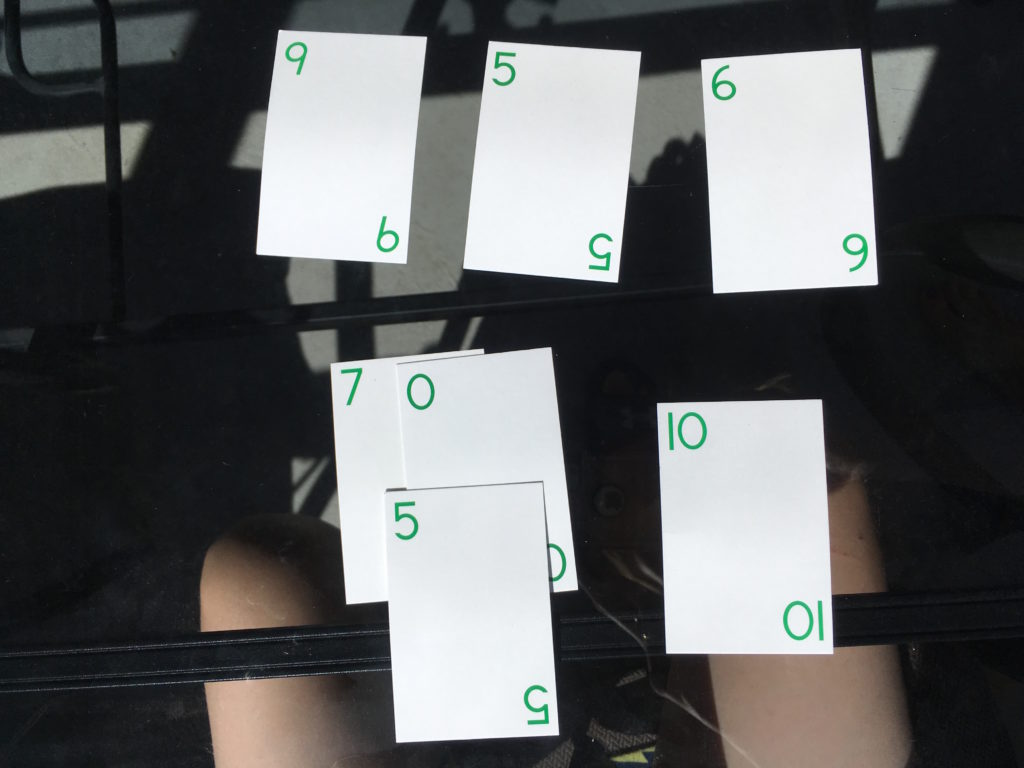

9 + 5 + 6 = 20 vs. 70/5 + 10 = 24
Robbie’s expression is closest to 20, so he wins all the cards in that round.
Sometimes you may lay down expressions that equal the same thing.
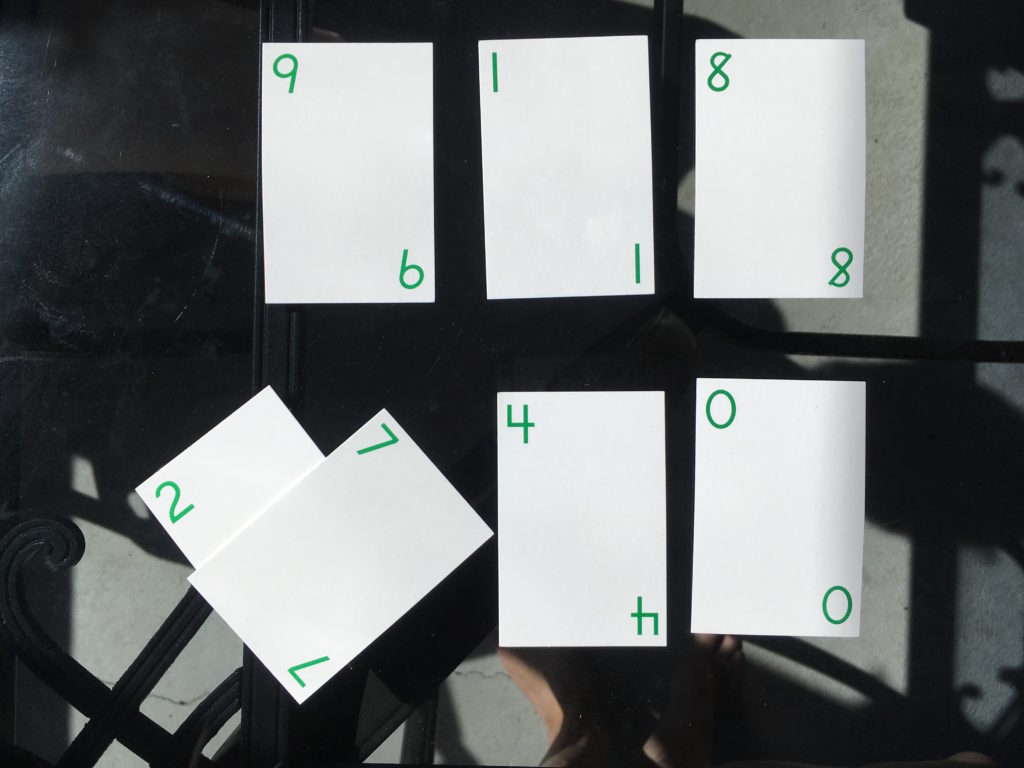

9 + 1 + 8 = 18 vs. 2 × 7 + 4 + 0 = 18
Here’s another example:
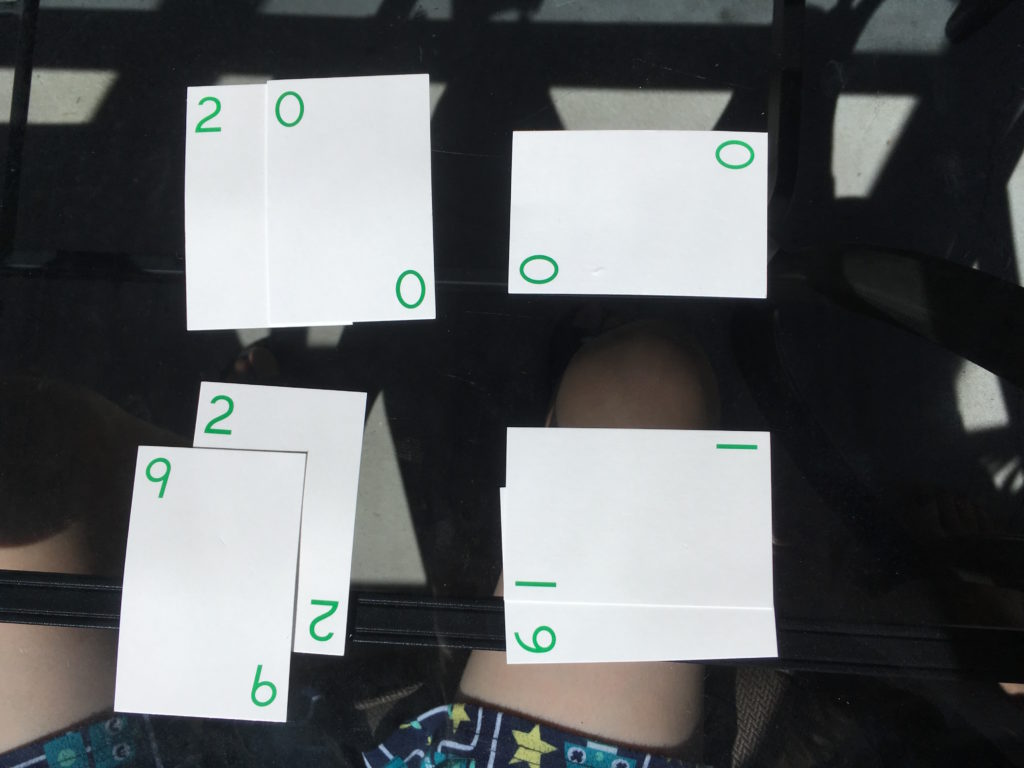

20 – 0 = 20 vs. 9² – 61 = 20
In this case, nobody wins the cards. You can either put them in a discard pile, or shuffle them and put them back in the draw pile.
After a faceoff is over, the players draw cards until everyone has four cards in their hands again. Again, the winner is the one with the largest “winnings” pile.
Not only does this variation help the game move a little more quickly, it also makes the game more accessible to players who are new to creating expressions, and it cuts down on the frustration of not being able to hit 20 with every hand.
Too easy for you? Then you’re ready for Master Level!
Make Twenty: Master Level
In the original game, if you can’t make twenty using the cards in your hand, you discard two cards and pick up two new cards. The number of cards in your hand never exceeds four.
However, in this variation, if you can’t make twenty from the cards in your hand, you simply pick up two new cards and skip your turn. Now you’ve got six cards in your hand instead of four! With six cards, the chances are much higher that you can create an expression that equals twenty.
We made up this variation last summer, and Robbie loved it so much that after a while he started skipping several turns in a row so that he could collect 8 or 10 cards and try to make twenty using the most complicated means possible. Here’s one of his creations:
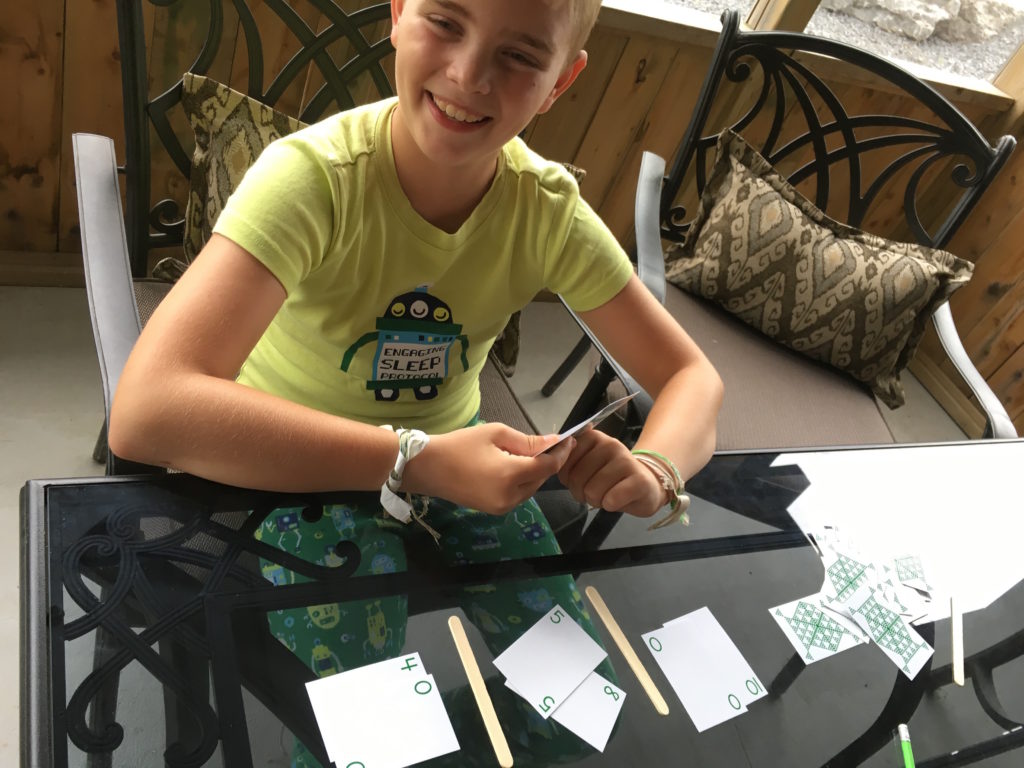

Can you see it on the table there? He did 100 – (8 × 5) – 40 = 20!
So in this variation, not only does it become easier to hit 20, but you can also build more interesting expressions. If you want your student to have more practice with order of operations, you could even create a rule that any expression has to have at least four (or five or six) cards in it. Because let’s be honest, in any variation of the game, some kid is going to try this:
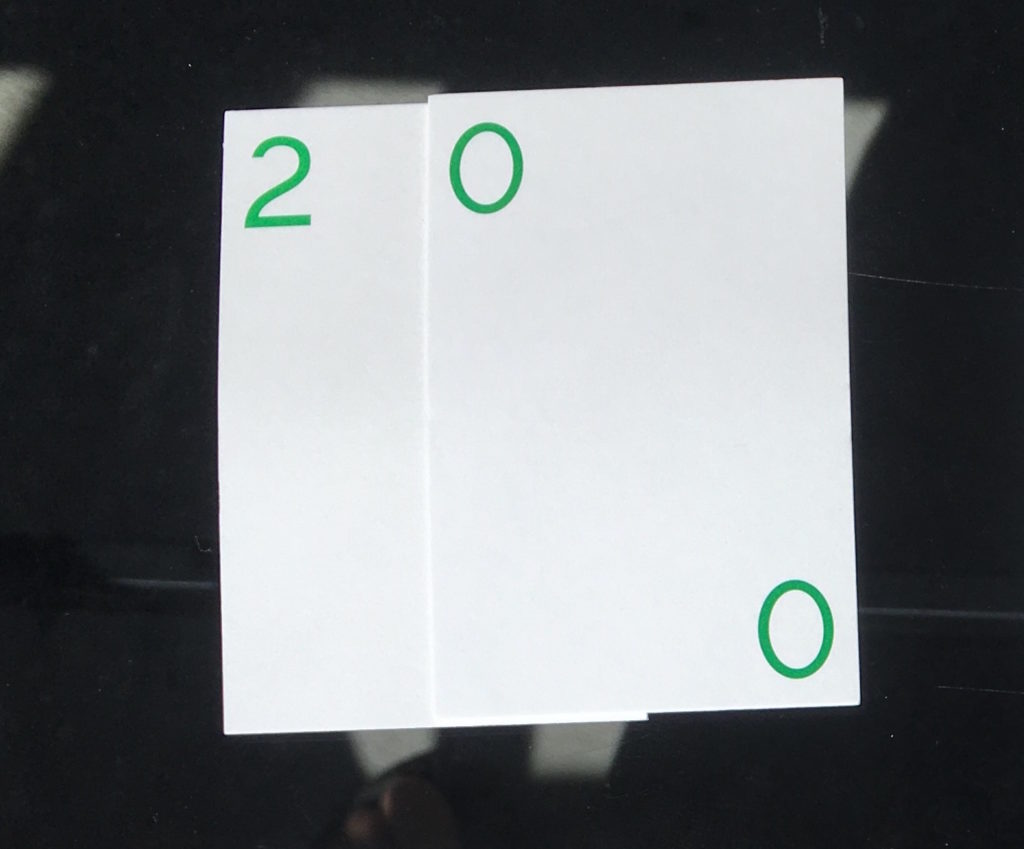

Yes, that kid has been my kid. And yes, it says 20. But no, it doesn’t count as an expression!
Way back at the beginning of the last week’s post, I promised you “the most fun of all the fun games”. It’s the master-level variation of the game that has produced the most laughter in our house. I’ll admit that some games have morphed into a competition to see who can come up with the longest expression that still equals 20. When your child’s cards stretch from one side of the table to the other in some ridiculous creation that still equals 20, that’s a big win. It might be a big win for your child at game night, but it’s also a win for your child’s algebraic thinking and mental facility with numbers; and most importantly, it’s a win for his enjoyment of math and desire to have fun with it and play with it. And that’s the kind of winning that really matters.
And… that’s all, folks! Stay tuned for more games to help you and your child understand, apply, and enjoy mathematics. If you’ve got a favourite game that you want us to feature or if you have any requests for help with a game that you just can’t figure out, please let us know – we’d love to showcase it.
